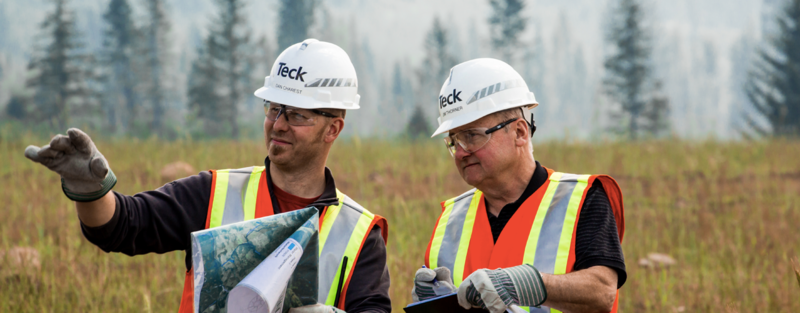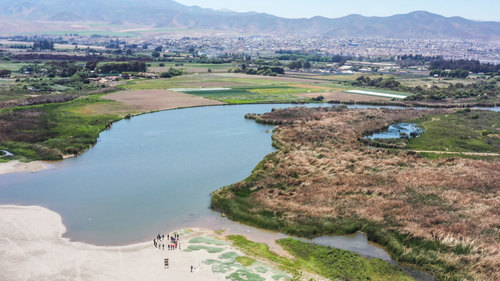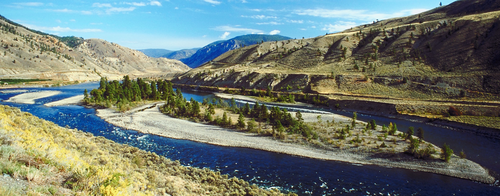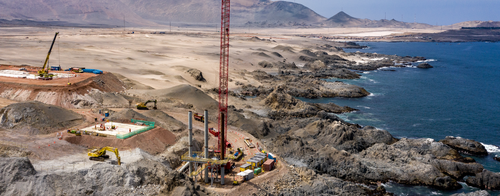Pursue continual improvement in environmental performance issues, such as water stewardship, energy use and climate change

In this section
Environmental Management
Responsible environmental management is an integral part of who we are as a company; it is embedded in Teck’s values through our commitment to sustainability, as well as in our Code of Sustainable Conduct and Charter of Corporate Responsibility.
In addition to being part of our core values, we also work in highly regulated jurisdictions with stringent and rigorously applied environmental legislation, which also makes environmental management a key compliance issue. Changes in environmental laws may have a material effect on our operations, both in terms of effort required to receive permits and investments required to achieve and maintain compliance.
Sound environmental management is an important component of regulatory compliance and permitting. This is particularly critical as permitting processes become more complex due to increased regulatory requirements, societal expectations, and interconnectivity of communities through technology.
Environmental management is also very important to our communities of interest. Demonstrating that we have robust environmental management can help build trust in local communities. Strong environmental management also allows us to avoid regulatory fines, project delays and/or material impacts on operations.
Read more about our work in environmental management.
Water Stewardship
Communities with whom we share watersheds care about access to sufficient quantities of clean water for physical and spiritual health, quality of life, economic well-being, and ecosystem health. We share these values, and our employees live in these same communities. Responsible water management is fundamental to maintaining the trust of our communities of interest. Teck recognizes that access to water is a human right and that water is essential to stakeholders in the watersheds where we operate.
We work to manage the amount of water we use and the quality of water as it leaves our operations and legacy properties. Water management is also a major strategic priority across every business unit in terms of meeting regulatory requirements and obtaining or maintaining permits. Water-related risks can impact both our ability to operate and our communities of interest, which is why stakeholder engagement on water management topics is essential.
We are working to be a leader in water stewardship by moving beyond compliance and towards collaborative water management practices that focus on sustaining and restoring water resources as outlined in our Water Policy. Our approach to water management is based on three key elements: protecting water quality, improving water use efficiency and engaging collaboratively within our watersheds. Wherever possible, we work to “keep clean water clean”, but we realize that impacts can occur; our water management approach aims to limit and/or remediate those impacts.
Read more about our work in water management.
Energy and Climate Change
We recognize that our activities consume energy and generate significant GHG emissions. This is why Teck has set ambitious targets to reduce our carbon footprint and advocate for policies that support the world’s transition to a lower-carbon economy.
At the same time, we know that the metals and minerals we produce are essential to building the technologies and infrastructure necessary to reduce GHGs and adapt to the effects of climate change. For example, renewable energy systems can require up to 12 times more copper, compared to traditional energy systems; steel, and the steelmaking coal required to make it, is necessary for infrastructure that reduces emissions, such as rapid transit and wind turbines. Continued responsible production of these metal and mineral products is essential to the global effort to combat human-caused climate change.
Read more about our work managing climate change and energy use.
Our strategy to contribute to global climate action, adapt to a lower-carbon economy and continue to responsibly produce the materials essential for society is built around four pillars: reducing our carbon footprint, positioning Teck for the lower-carbon economy, advocating for climate action, and adapting to the physical impacts of climate change. This strategy is outlined in the section below and in our Climate Action Strategy.
Our work in this area is externally verified by an independent third-party every year. Learn more in our sustainability report.





.png)





